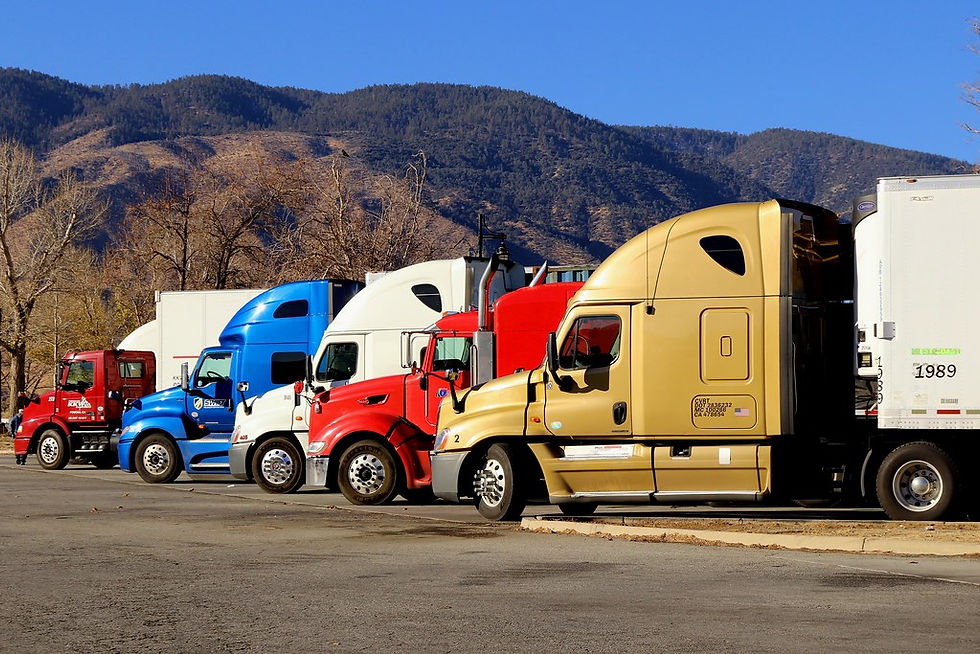California, Federal Government Wage War on Trucks
- D9480
- May 23, 2024
- 3 min read
Updated: Oct 2, 2024

Regulators on the state and federal levels aim to kill diesel-powered trucks within a decade, but some trucking companies are fighting back.
The Biden administration is pressing ahead in its mission to ensure that the majority of trucks on the road are replaced with electric vehicles over the next decade, and its efforts are receiving increasing regulatory support at the state level.
In March, the Environmental Protection Agency announced a set of sweeping new reforms placing limits on tailpipe emissions. These limits are set to gradually increase over the next eight years so that electric vehicles and other so-called zero-emission vehicles will make up the majority of the market by 2032.
This regulatory framework signifies a radical shift for the motor vehicle industry in America. So far, electric vehicles have not proven popular with the majority of consumers, making up only 7.6% of total car sales in the United States in 2023.
The shift will have obvious ramifications for automobile drivers, who will be forced to hold onto aging gas-powered cars or switch them out for electric ones. Less immediately visible, but no less impactful, will be its impact on the American trucking industry, which makes up the backbone of freight transportation within the country, and employs over three and a half million drivers. A disruption to trucking means a disruption to everyday American life, and the new Biden administration rules all but ensure vast disruptions within the trucking industry.
Yet truckers may find themselves waging a two-front war, with federal regulators working hand-in-hand with those in certain states, most notably California. The state’s Advanced Clean Fleet regulations, released last year by the California Air Resources Board (CARB), mandate that 100% of heavy-duty vehicles sold by 2036 must be zero-emission, as must all drayage trucks that enter seaports and intermodal railyards by 2035. Since around 40% of all containerized imports in the United States travel through California ports, this will impact shipping nationwide.
According to a report by Steven Bradbury, a Distinguished Fellow at the Heritage Foundation, the new California regulations would be “calamitous” for the economy and for ordinary Americans. The Biden administration, which has colluded with California to pass these regulations under the Clean Air Act, is operating according to a framework that prioritizes the elimination of fossil fuels.
There are several problems with this approach, Bradbury argues. For one, electric vehicles are not truly zero emission. In fact, the emissions produced by the manufacture of their batteries, and the cost of energy required to fuel them, are nearly comparable to that of gas-powered vehicles.
Electric trucks are also simply not competitive with regular diesel-powered ones, and will not become so in the near future, absent significant technological breakthroughs which may or may not occur. Electric trucks are pricier and heavier than regular trucks, and they can only function for limited stretches of time, far shorter than the average 8–12-hour trucking day.
What’s more, the state and federal regulatory bodies are solving a problem that may already be solving itself. As Bradbury points out, diesel trucks today already release significantly less in emissions than those manufactured in past decades. A policy designed to limit carbon output without wreaking economic havoc might do better to pursue research into cleaner and more efficient diesel trucks.
That is why, last fall, the California Trucking Association filed a lawsuit against CARB. The case, which was filed in the U.S. District Court for the Eastern District of California, alleges that the Advanced Clean Fleets regulations violate the Commerce Clause of the United States Constitution because they will impose a vast burden on interstate commerce, as well as the Due Process Clause of the Fourteenth Amendment. Furthermore, the suit argues, the California rules are preempted by portions of the federal Clean Air and Motor Carrier acts.
Federal and California state regulators also found themselves the target of litigation by a group of two dozen state attorneys general. The charge was led by Mike Hilgers, the Attorney General of Nebraska, who called the federal and state regulations unconstitutional and said that they would “devastate the trucking and logistics industry, raise prices for customers, and impact an untold number of jobs across Nebraska and the country.”
It is too early to know for certain whether these lawsuits will ultimately succeed, but one thing is clear: the trucking industry of America will not relinquish their diesel-powered vehicles without a fight.







Comments